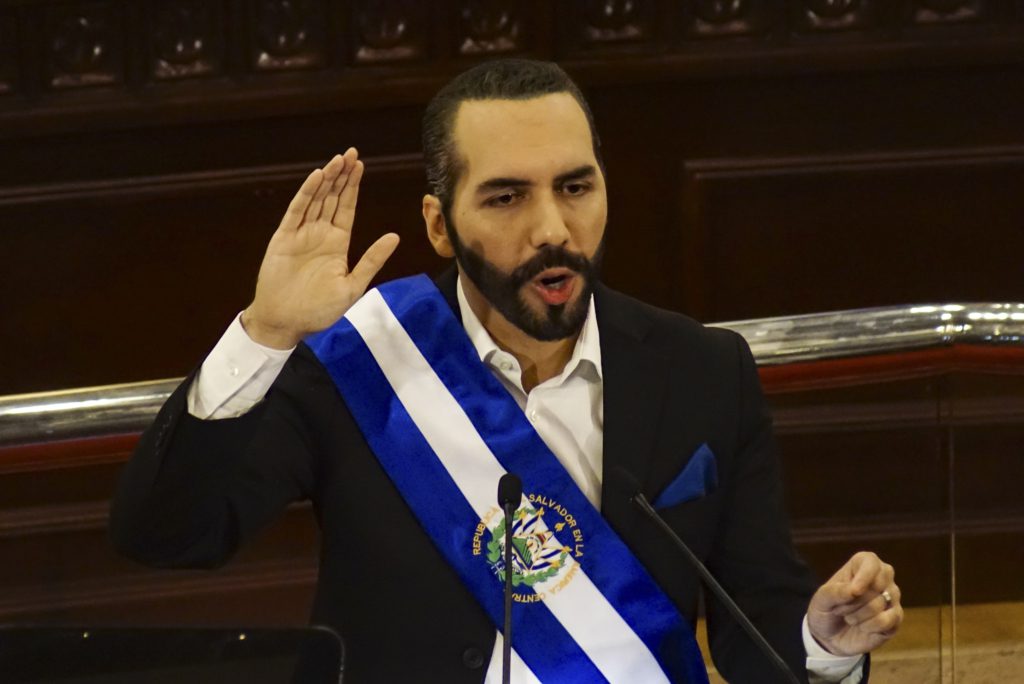
December 1 marked the halfway point of Nayib Bukele’s five-year term as president of El Salvador. The road has not been easy. When the young leader took office, the nation’s homicide rate was among the highest in Latin America, women’s rights were severely under threat due to some of the toughest anti-abortion laws in the world, and victims of the country’s bloody armed conflict were still awaiting justice, truth and reparation nearly 30 years after the signing of the peace accords.
When Amnesty International met him in June 2019, 24 days after he took office, to share our concerns about the grave human rights situation in El Salvador, Bukele committed to tackling some of the country’s historic challenges, becoming a distinct voice in Central America and remaining open to international scrutiny.
Fast forward the clock two and a half years and, instead of progress, what you will see is an astronomic rollback on human rights as Bukele turned from a bright promise into a leader whose “with me or against me” approach is destroying what many generations of activists have tried to build for decades.
Since he took office, the right to express an opinion, to freedom of association or even for women to make decisions regarding their own bodies have been, at best, ignored and, at worst, purposefully pushed aside.
Today, in El Salvador, there’s very little space for anything other than supporting the President. As a Salvadoran who lived her childhood during the armed conflict, I have watched with despair how the current government has been dismantling, one by one, each of the institutions that should work to strengthen human rights, and backtracking on the path initiated with the Peace Accords back in 1992. The prospect of having the country that my family wanted my generation to inherit is vanishing into thin air.
Bukele’s strategy is not new. He took office armed with a roadmap borrowed from his neighbour: Nicaragua’s Daniel Ortega, a man who has shrunk civil space so much that it is now practically invisible.
First, Bukele effectively declared open season on independent journalists, lawyers, human rights activists, and anybody who dared criticise him or his administration’s policies. The campaign begun online, where he badmouthed and dismissed their work. He branded activists as “criminals”, “seeking the death of more people” during the toughest months of the COVID-19 pandemic and of being “front organizations” fof the “political opposition”.
When the leader of a country with a relatively small population starts smearing people by name, it gives a green light for something much more dangerous. What followed was the development of a hostile environment in which people started to feel they could no longer speak their mind without a possible reprisal or being publicly discredited by the authorities.
Journalists are also working in an increasingly hostile environment– so much so that El Salvador has dropped eight places on Reporters Without Borders’s 2021 press freedom ranking and at least 23 journalists reported that they had reason to believe they were under surveillance. Despite the growing risks, many brave media professionals continue to work to uncover wrongdoing.
There’s more.
Over the past year, Bukele’s political party, Nuevas Ideas (New Ideas) won a majority of the Legislative Assembly, which opened the door for more changes.
Since May, legislators in El Salvador have been busy rubberstamping the leader’s plans. First, they removed the magistrates of the Constitutional Chamber of the Supreme Court of Justice and the Attorney General of the Republic. This was considered by many an attack on the right to access to justice and judicial independence.
Then they set a number of priorities for the laws they decided to support or consider, including some to remove judges and prosecutors and a proposal to limit the funding that human rights organizations can receive, while dismissing bills to protect human rights defenders and journalists, to create a system to help the search for the disappeared, and to make abortion accessible.
In September, the Constitutional Chamber of the Supreme Court issued a ruling allowing for immediate presidential re-election, in contravention with the country’s constitution.
The president’s battle-like strategy against anybody he sees as standing on the opposite side of the aisle is not helping anybody. On the surface, his high approval ratings, and apparently loyal online following might paint El Salvador as a country where things are working. The reality, however, tells a different story.
Shutting down critics does not make their arguments less valid. Instead, engaging in meaningful conversations with them could help Bukele build the country he promised. It is not too late, at least not yet.
El Salvador’s president Bukele must change course before it’s too late
Source: Global Pinoys PH

0 Comments